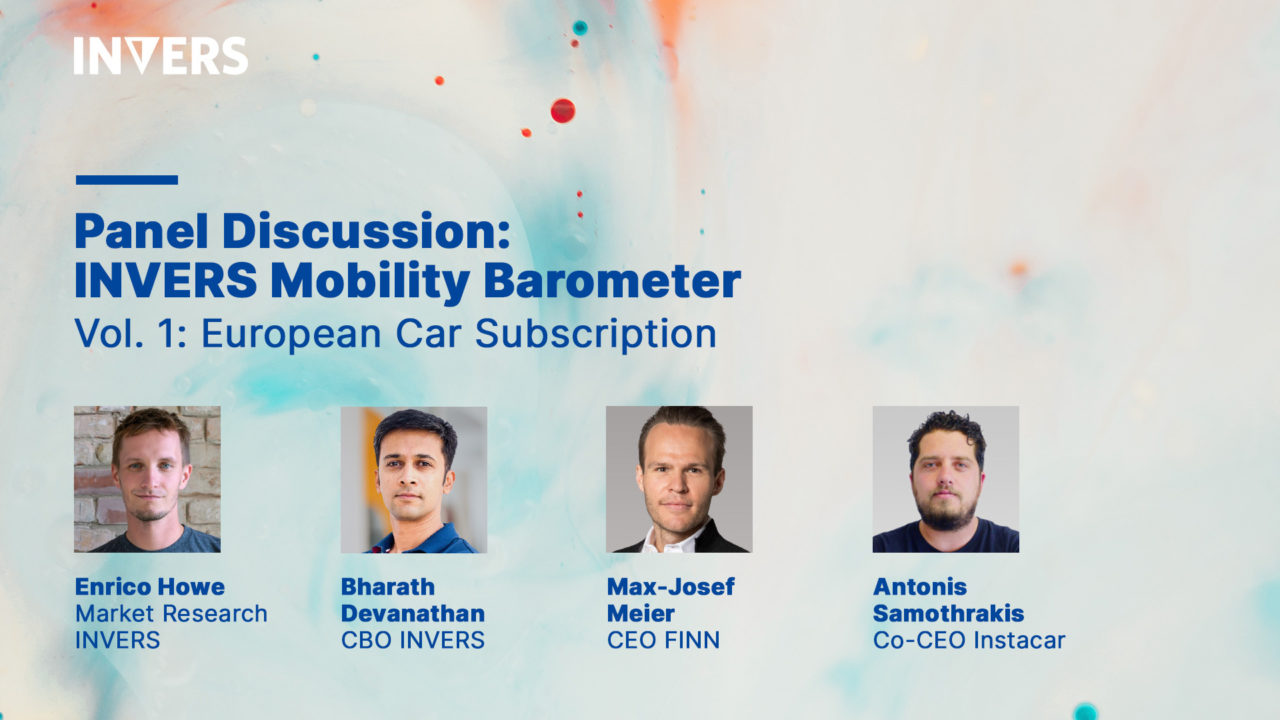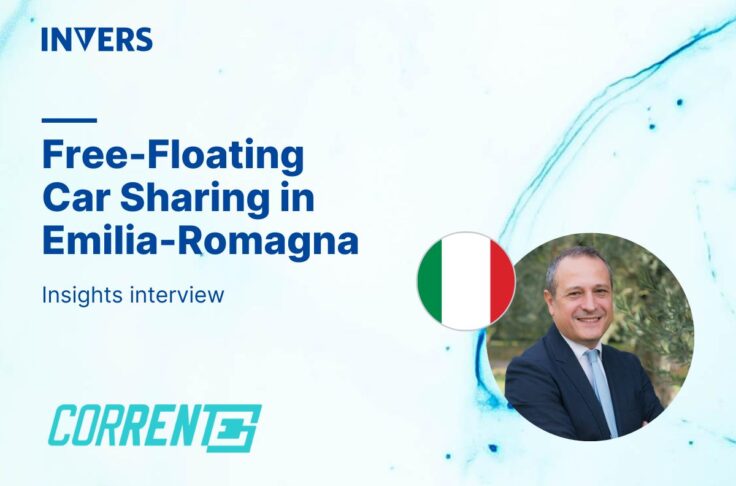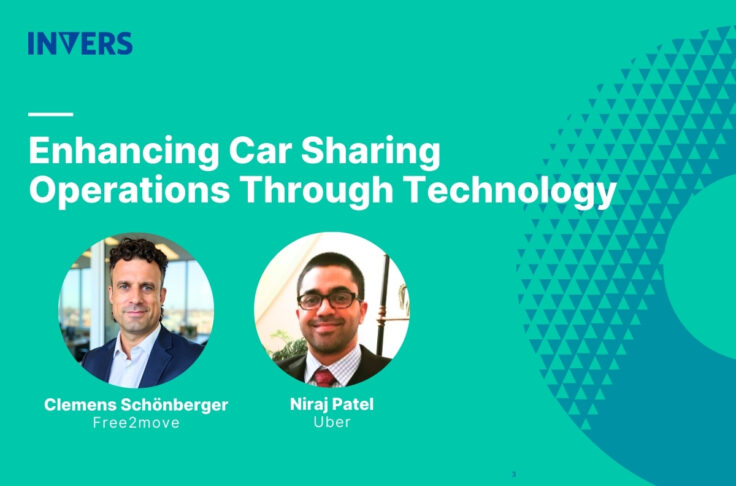European Car Subscription Report – Launch Event Recap
On August 30th, we proudly launched the first edition of our INVERS Mobility Barometer, which focuses on the European car subscription market, during a digital round-table panel event.
Report co-author, Enrico Howe, introduced the report and discussed the industry with Max-Josef Meier, CEO & Co-Founder of FINN, Antonis Samothrakis, Co-CEO & Co-Founder of Instacar, and Bharath Devanathan, our Chief Business Officer.
The panel talked about the demands of car subscription users, the factors that affect the makeup of car subscription fleets, and the pros and cons of owning vs leasing/renting fleet vehicles among other issues. Read on for their thoughts on those topics and more in the following panel recap.

After a brief overview of top-level trends outlined in the first INVERS Mobility Barometer, moderator Enrico Howe engaged the panel in a discussion on topics as diverse as how car subscription companies use telematics data, differences observed between the US and European markets, and what their biggest perceived risks are.

The entire presentation is worth watching to see the panel’s opinions and answers to questions from Enrico and the audience; here we highlight the three topics we found most interesting:
Market forces shape fleet buying or leasing/renting decisions
Both FINN and Instacar own most of their fleet, but also rent or lease a major part of it. Instacar recognized that getting new funding whenever they wanted to expand their fleet with new cars would be difficult. That’s when they took advantage of the pandemic’s impact on the car rental market to expand their fleet with rentals. This required no capital, established good relationships with the rental companies, and was the start of their hybrid own/rent approach. Renting some of their vehicles lets Instacar expand with less capital and risk, though at the cost of lower profit margins.
Our panelists agreed that owning most of their vehicles gives them control over key operational aspects, such as customer service. An audience member then asked the panel whether buying new, or lightly used vehicles is preferable. Max replied that buying new cars in bulk is easier to plan and more scalable than buying individual used cars. And while initial depreciation is significant for consumers buying individual cars, this is not necessarily the case for fleet purchases.
But in the end, the market may have the ultimate say in the new vs. lightly used buying decision. Antonis mentioned that Instacar is currently selling their cars for more than when they bought them lightly used in 2019. He predicts a used-car market correction within the next year or two, but until then it makes more sense for car subscription operators to buy new.
Demand is driven by a mix of B2C and B2B use-cases
Antonis had difficulties getting cars for his previous business in 2017, which revealed the potential for car subscription in Greece. True to his prediction, Instacar’s current clients are mainly new SMEs (Small and Medium Enterprises). New companies often have no credit history, and don’t want to commit to a car for several years. This makes car subscription a better choice than ownership or leasing. At the same time, Greece’s famous tourist season is a reliable source of clients during the summer months.
In Germany B2B clients also make up most of the clientele for FINN. In the USA, where tax breaks for corporate cars are smaller, the situation is reversed. However, Max cited an interesting fact about the US market; many B2C subscriptions there are subsidized by employers as a corporate perk. He predicts that trend that will come to Germany too, causing a blurring between B2B and B2C use cases.
Finally, in some markets, B2C consumers choose car subscription because it does not affect their credit scores. Fewer liabilities on credit scores may increase users’ ability to get a mortgage, driving the B2C demand for subscriptions.
OEMs are increasingly interested in car subscription
Car subscription provides growth opportunities for OEMs, making it likely they’ll become both bigger competitors and partners in the space.
Max pointed to Tesla as a market disruptor, as their websites look more like e-commerce stores than traditional OEM portals. Subscription clients already expect online transactions for car subscriptions to be as easy as Spotify or Netflix subscriptions, for example. Many OEMs are therefore likely to develop their own, one-brand online car subscription stores to enter the market.
At the same time, data suggests that many customers want the bigger choice of vehicles offered by multi-brand platforms. To dip into that pool, OEMs will want to add their vehicles to multi-brand car subscription providers. Max compared it to Nike’s and Apple’s approach: brands with their own e-commerce stores, who also participate on multi-brand platforms like Amazon. He guessed that OEMs are waiting for fewer, big multi-brand platforms to emerge, rather than working with many smaller players.
Download the report for a deep-dive into the topic, then watch the panel recording (link to video at the top of the blog post) for expert opinions on the state of the European car subscription industry.
Please subscribe to our news updates to be notified about future reports, panels, webinars, and e-papers.




